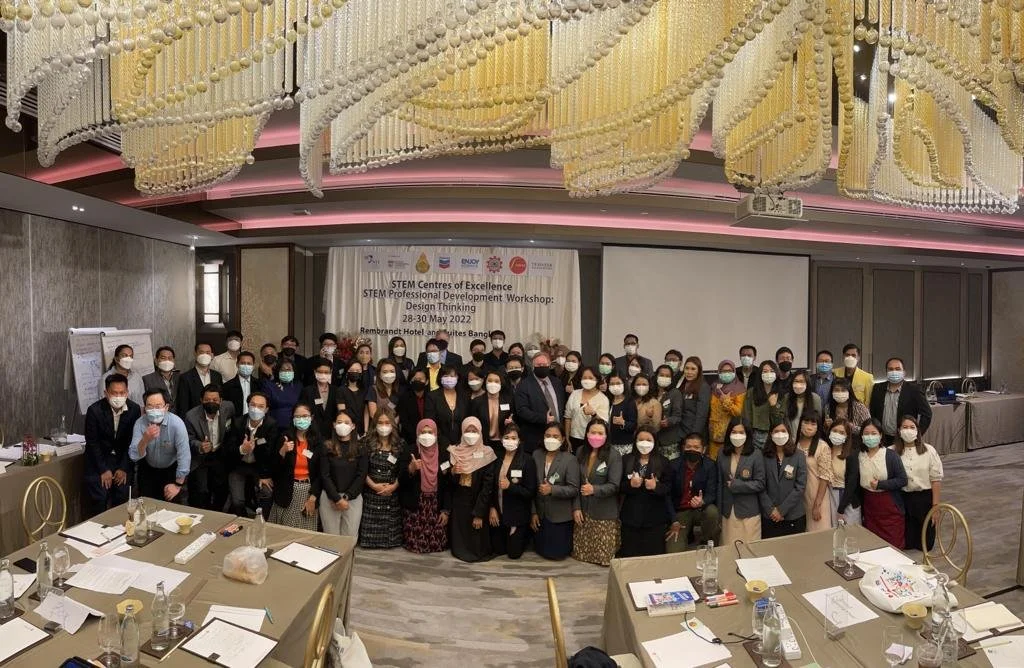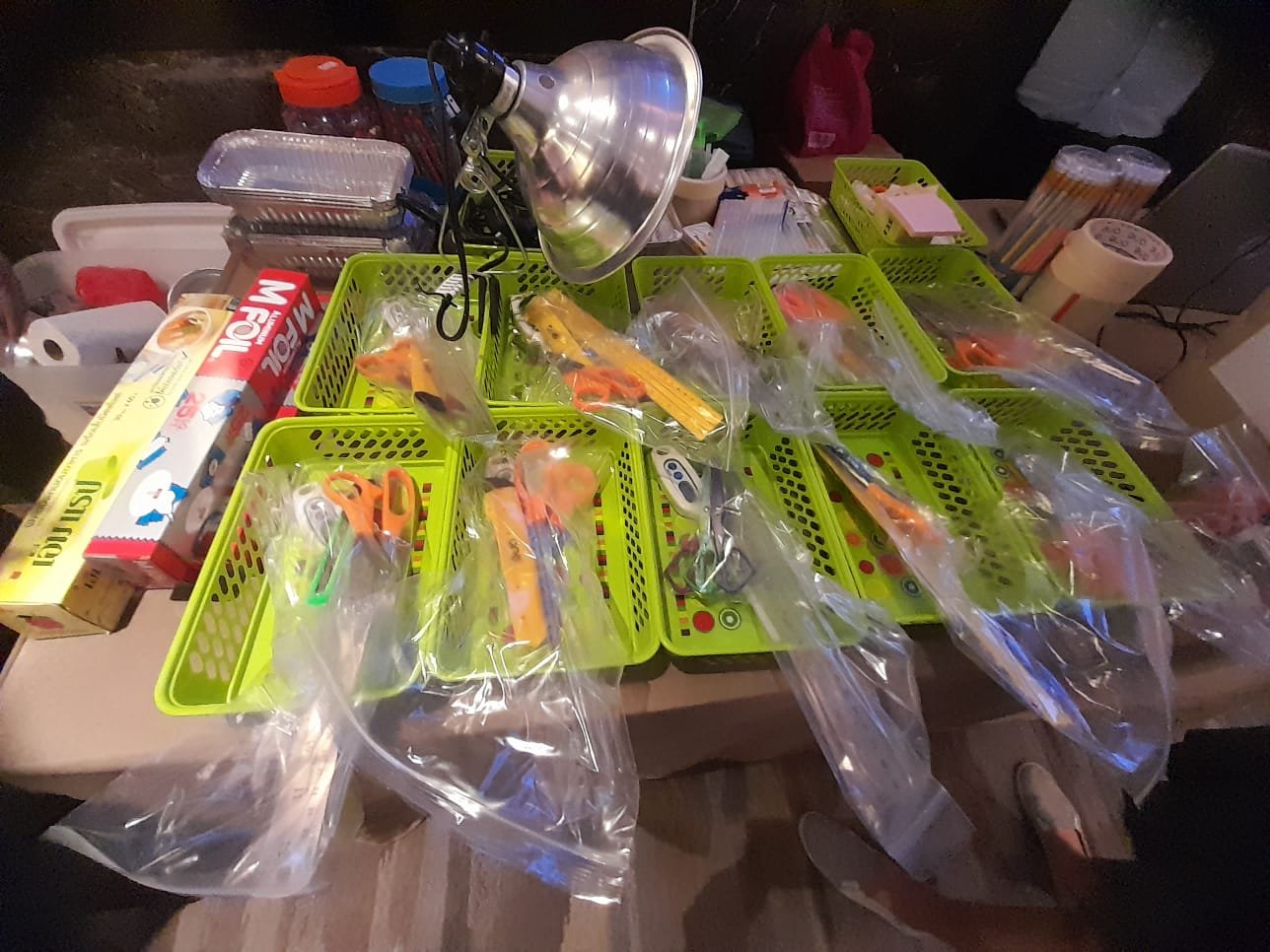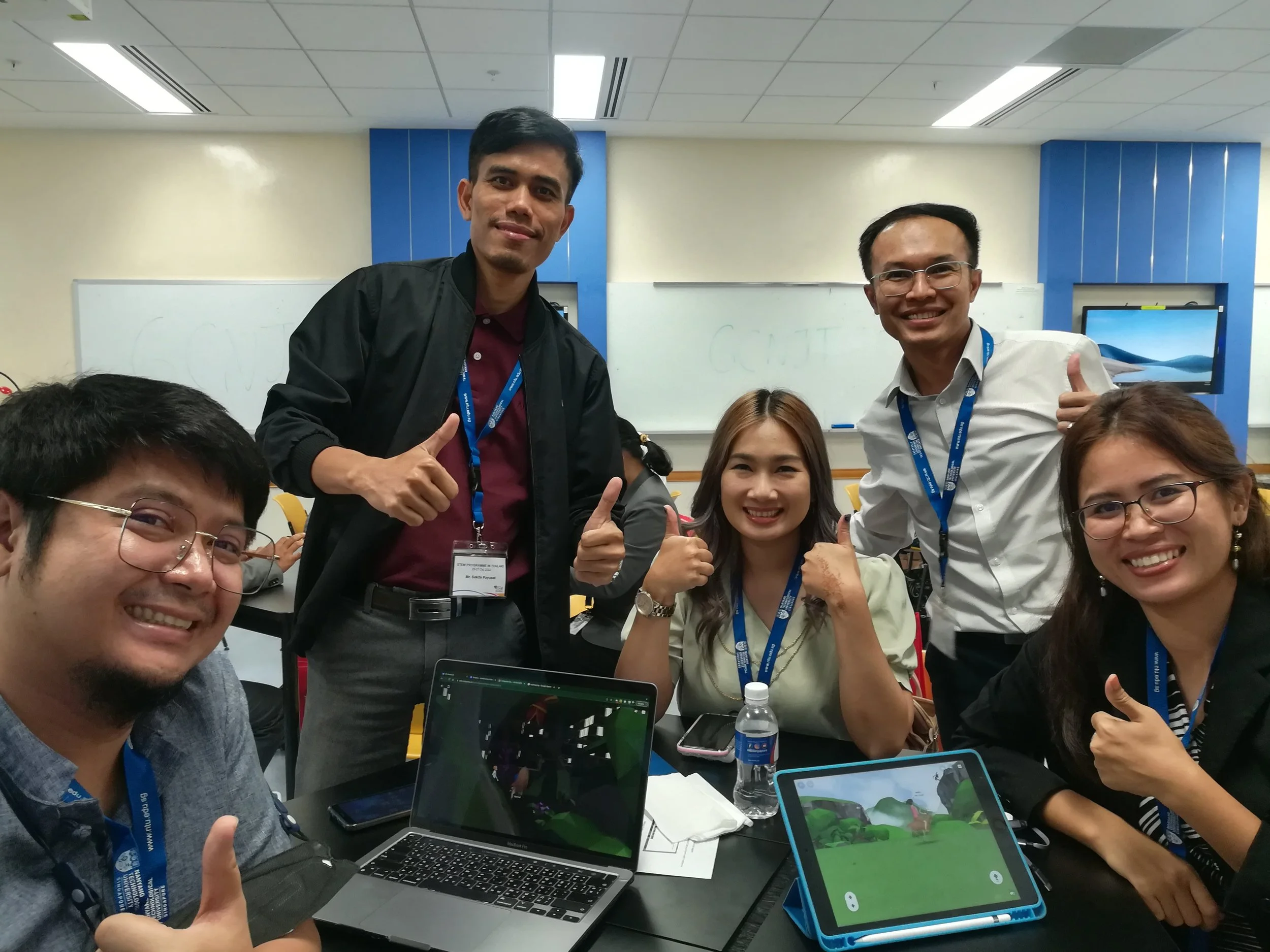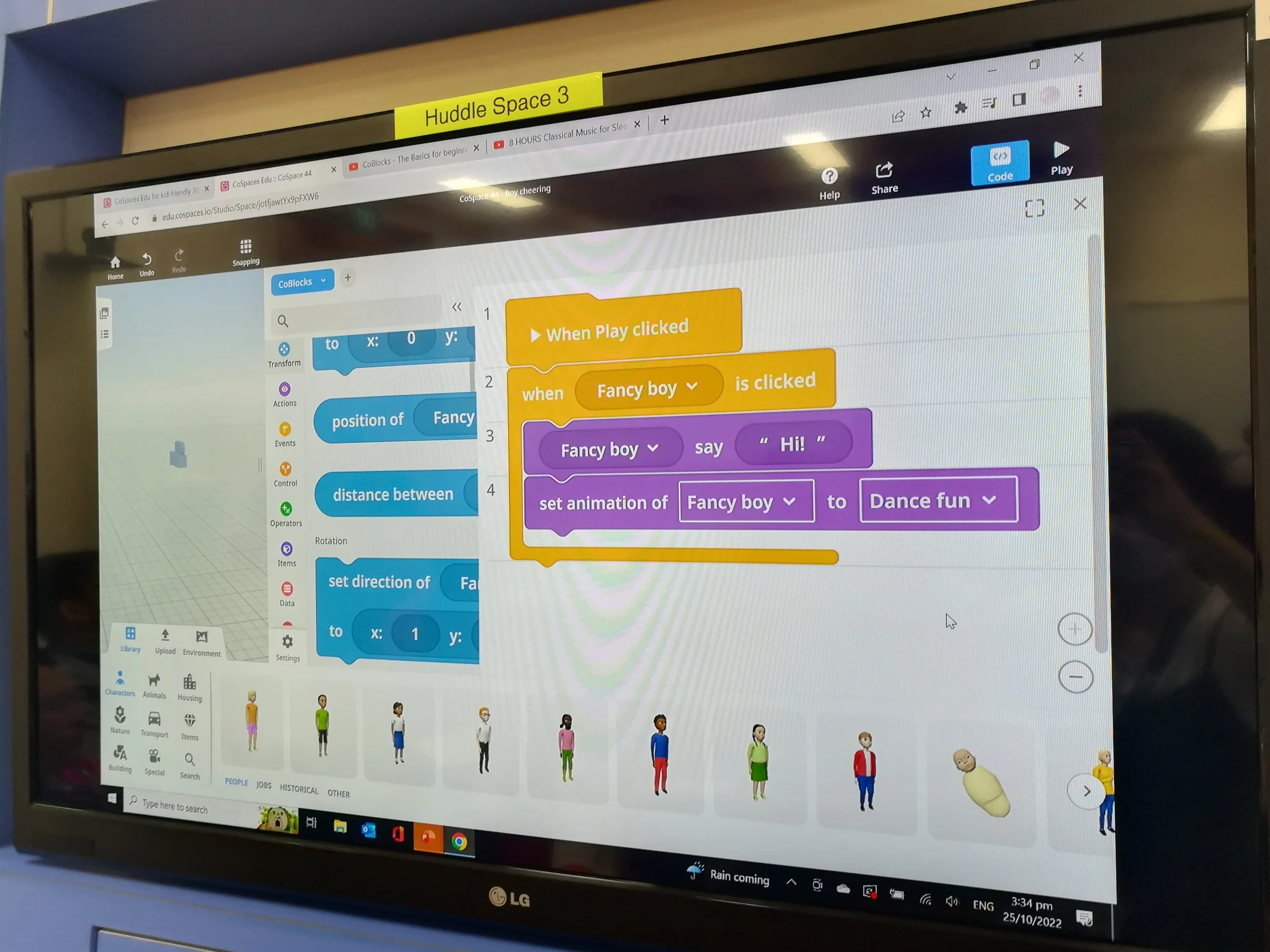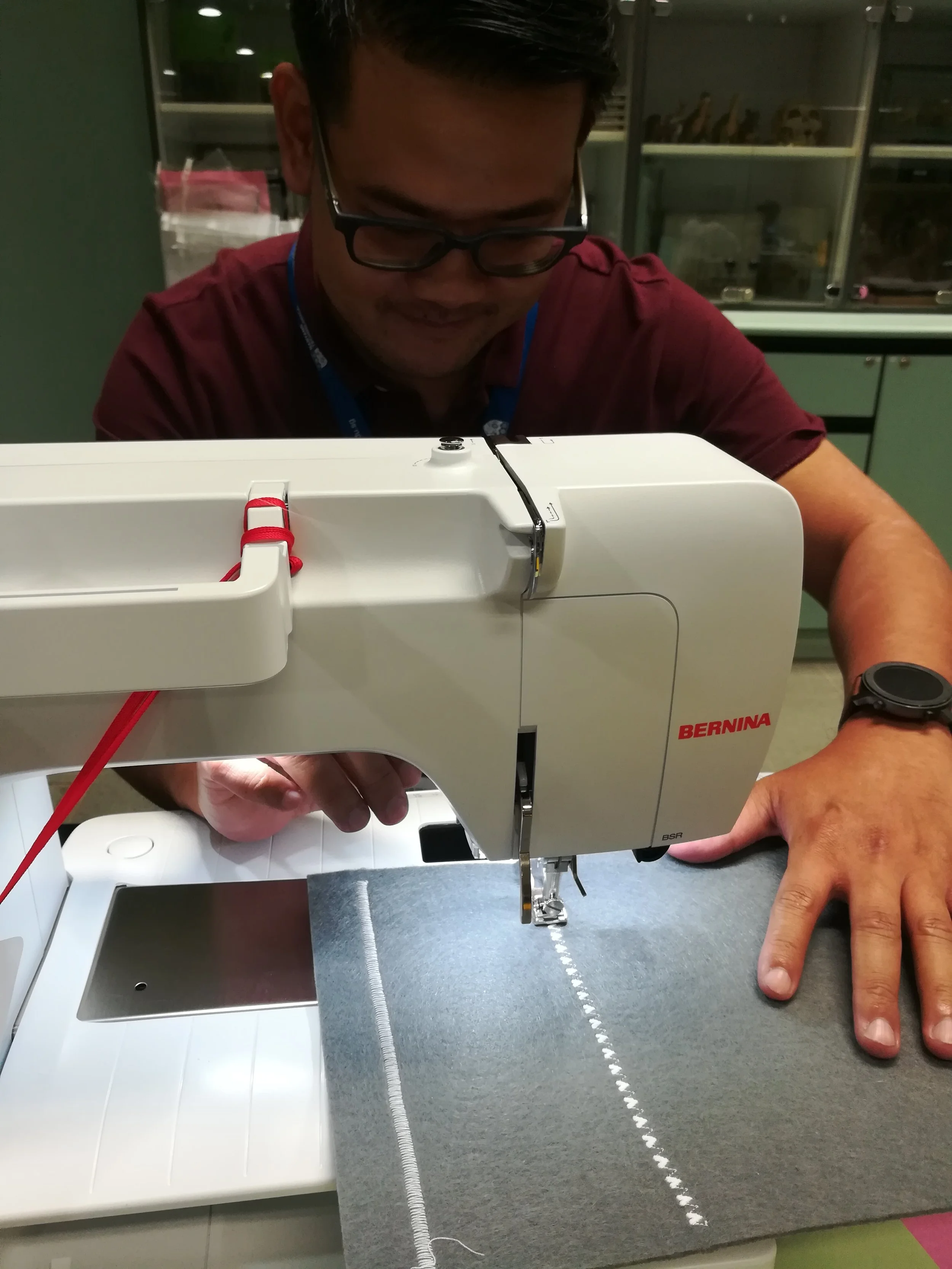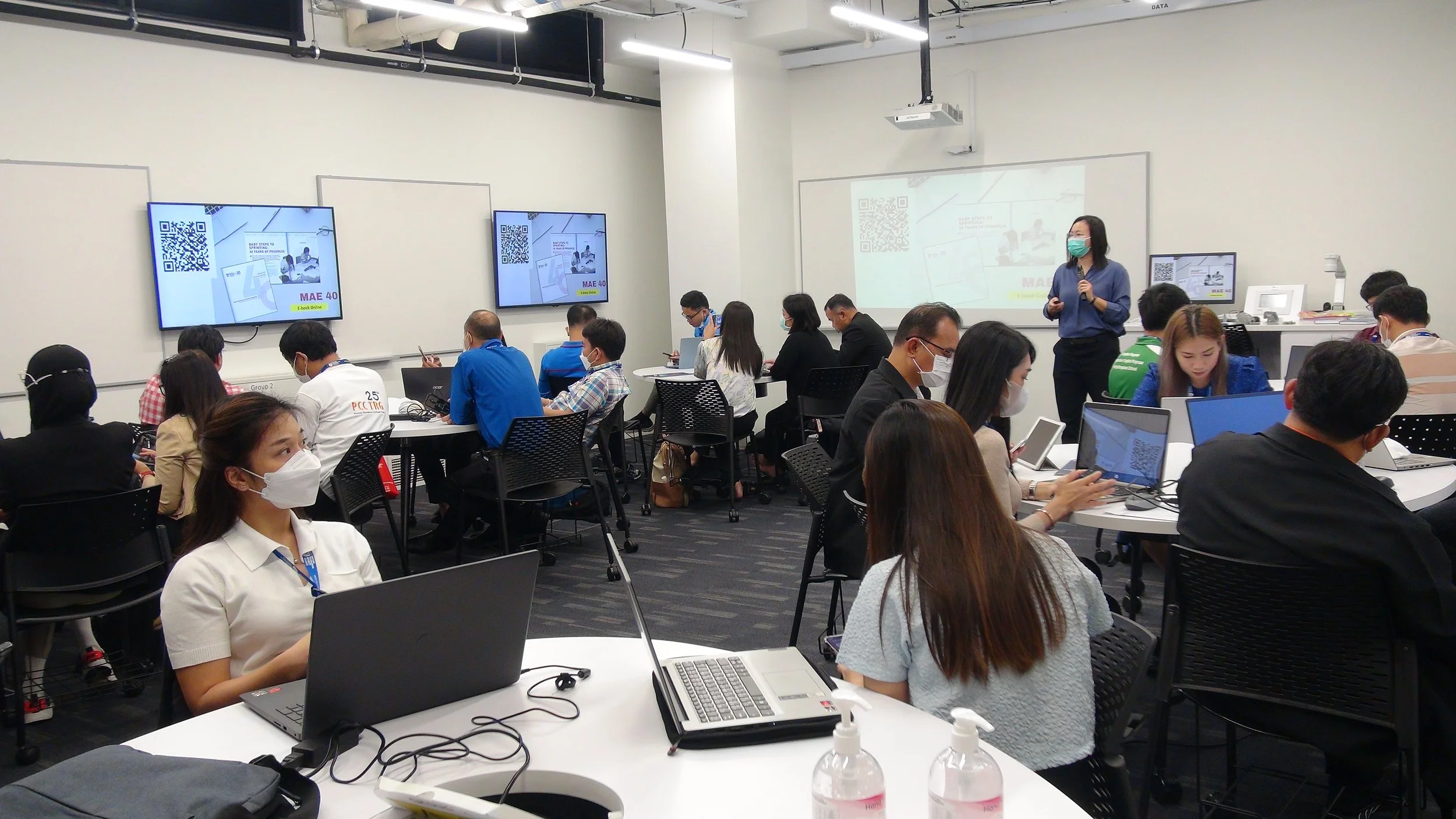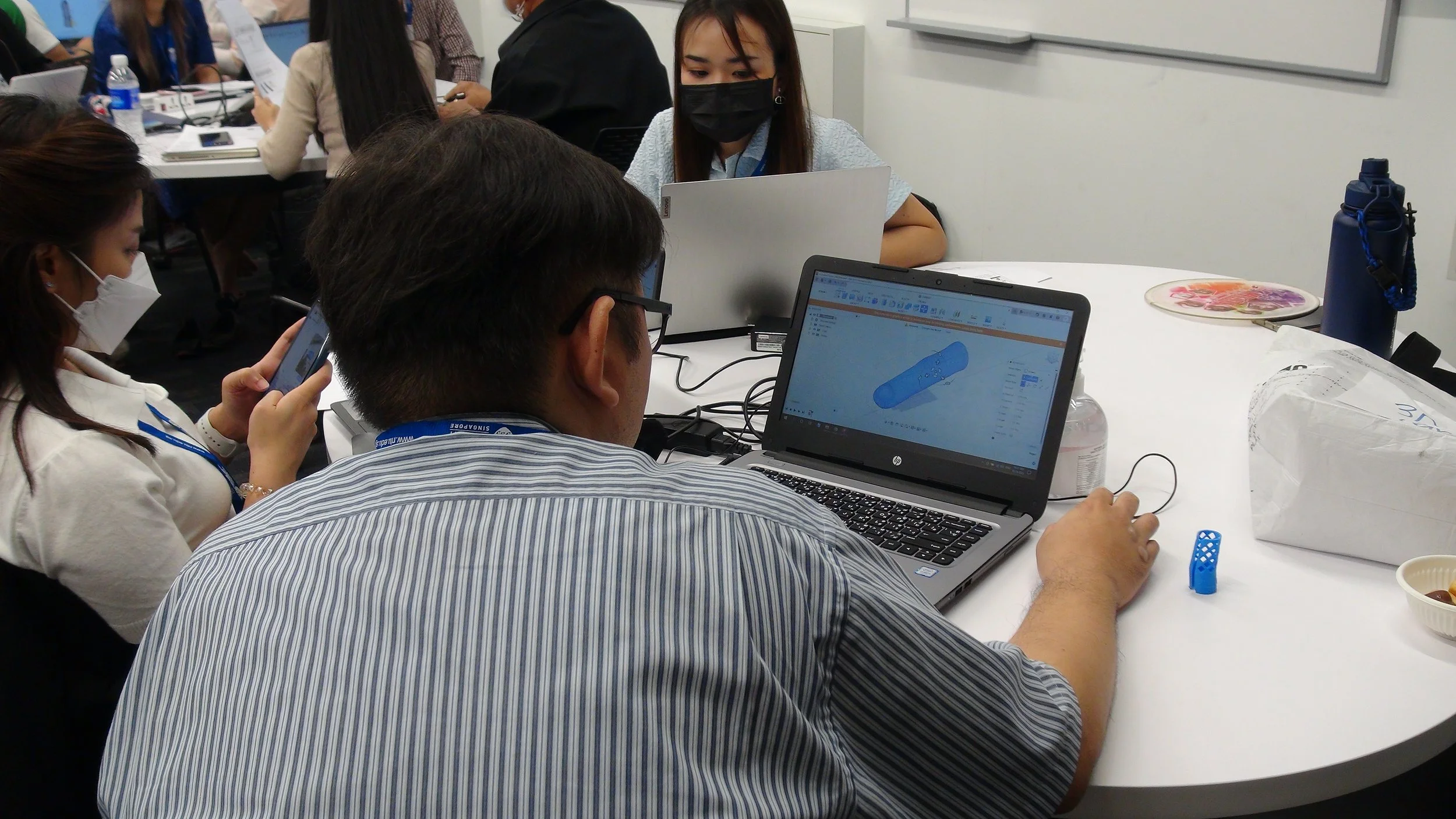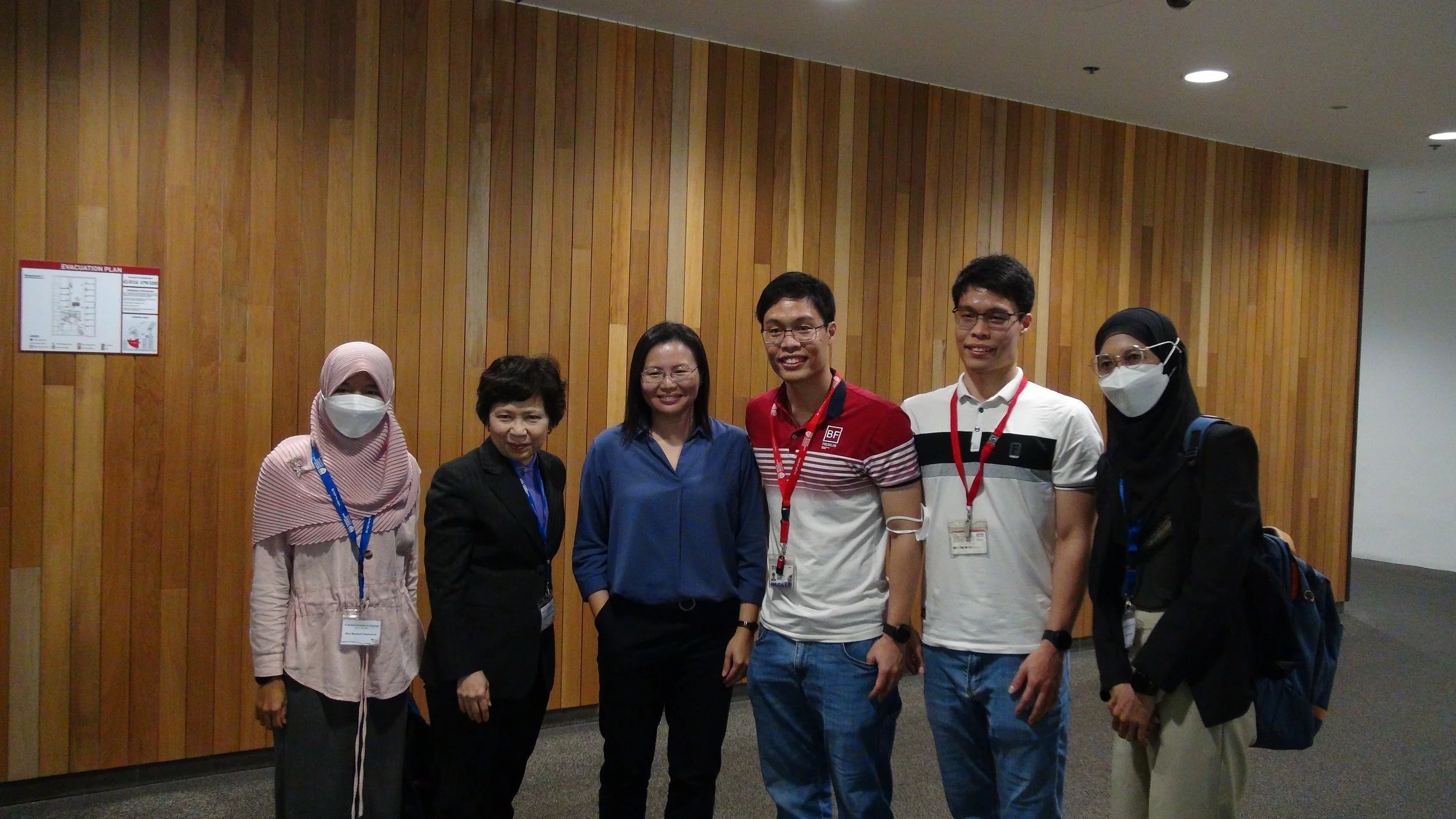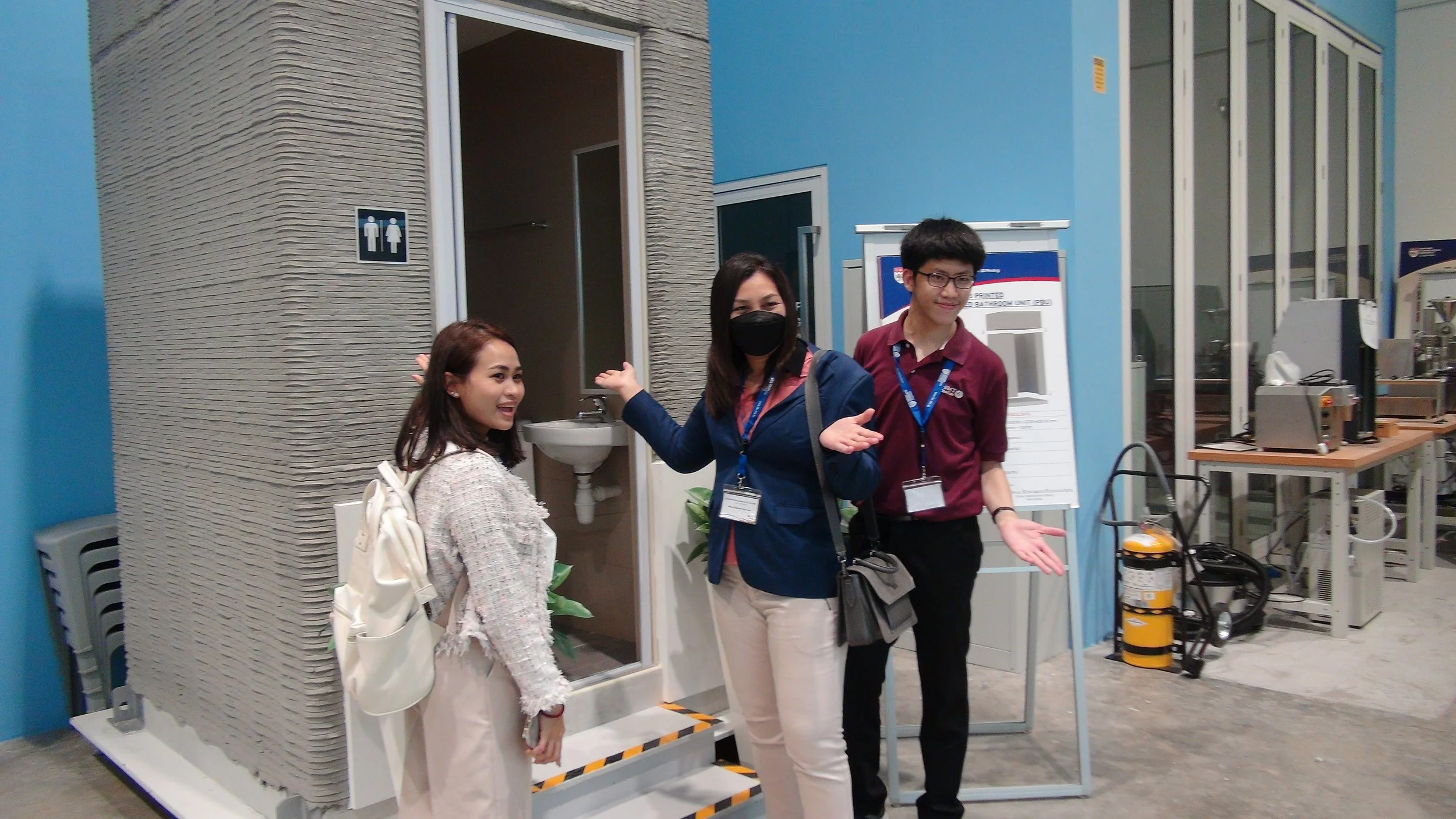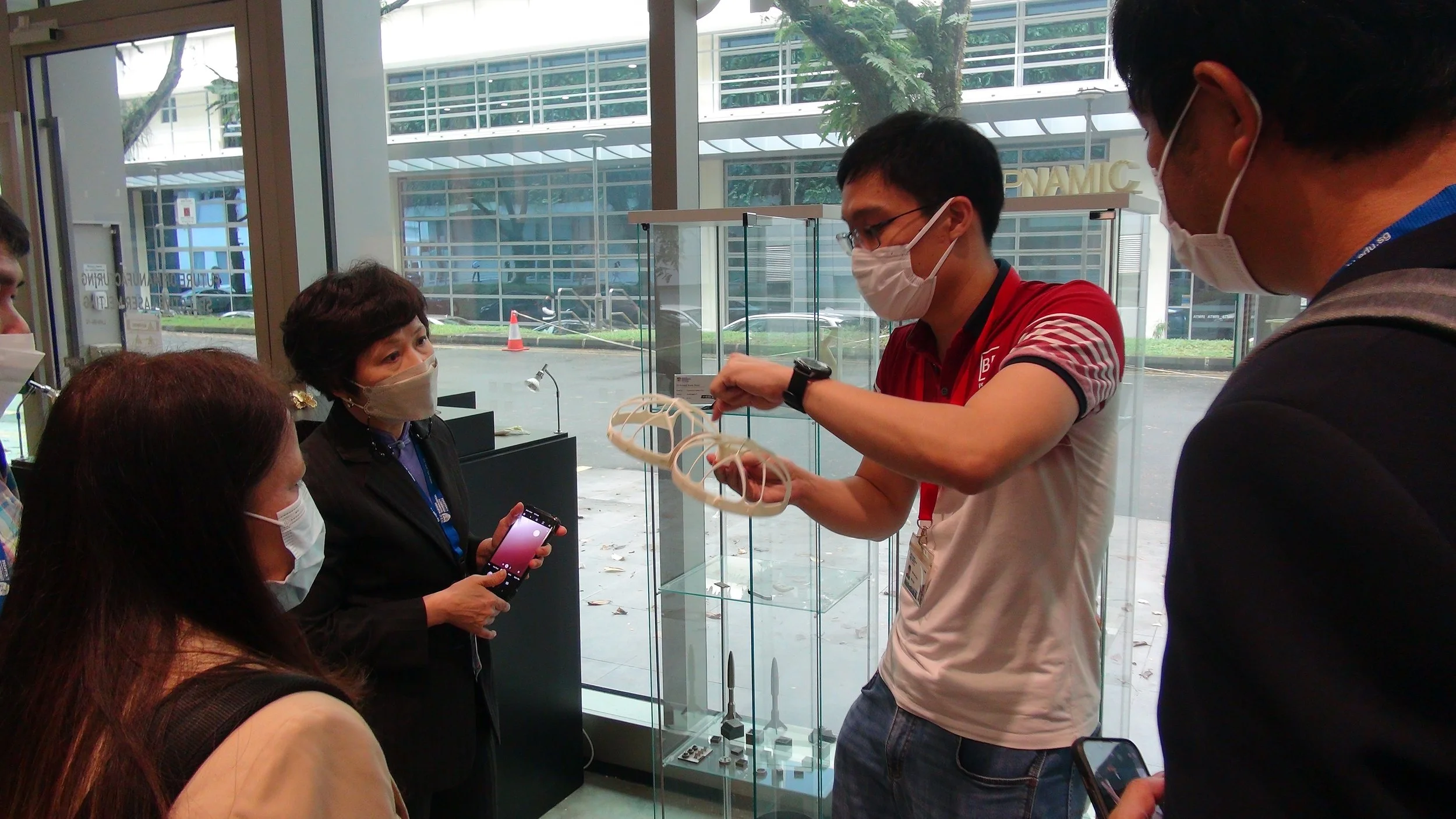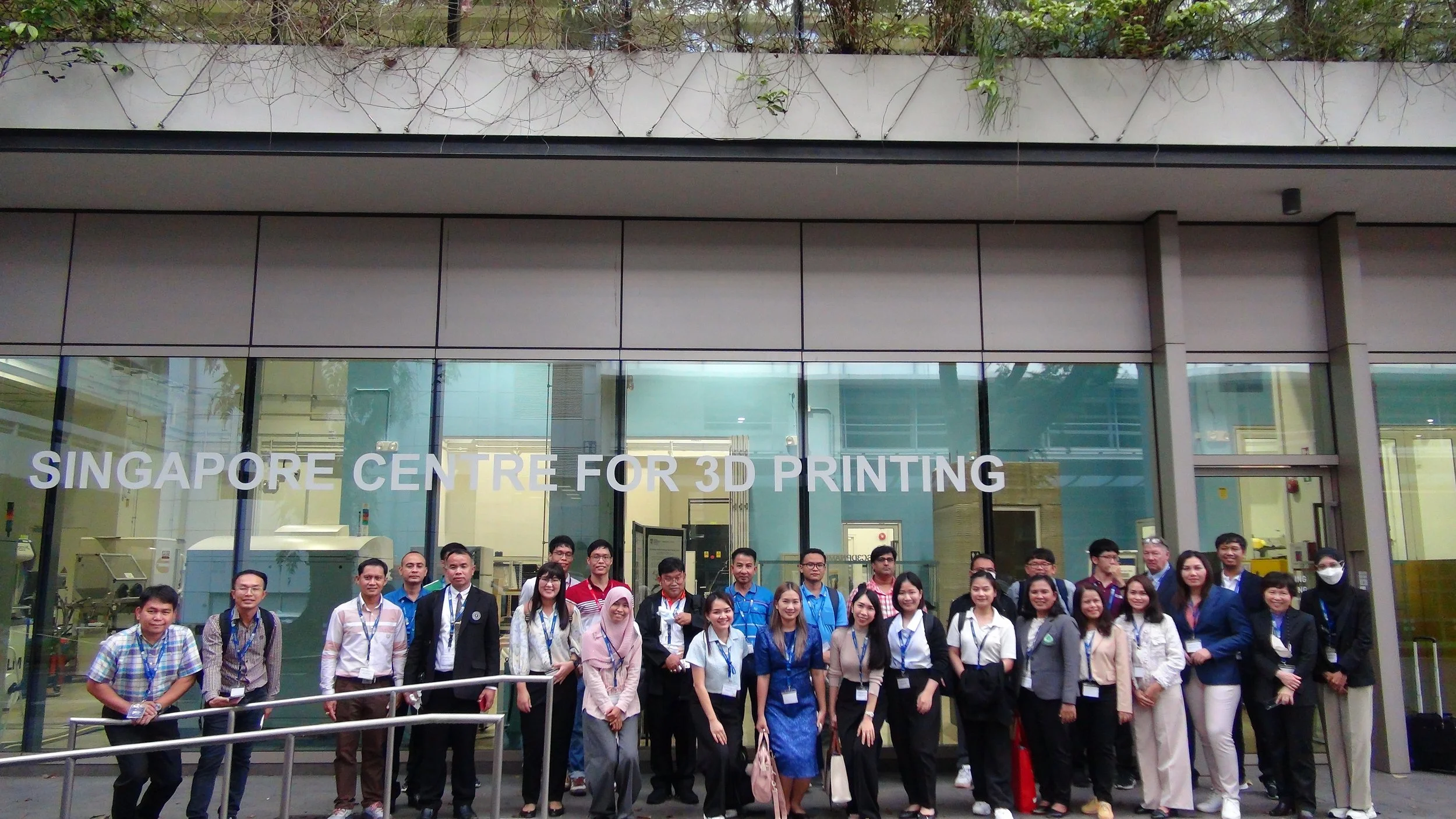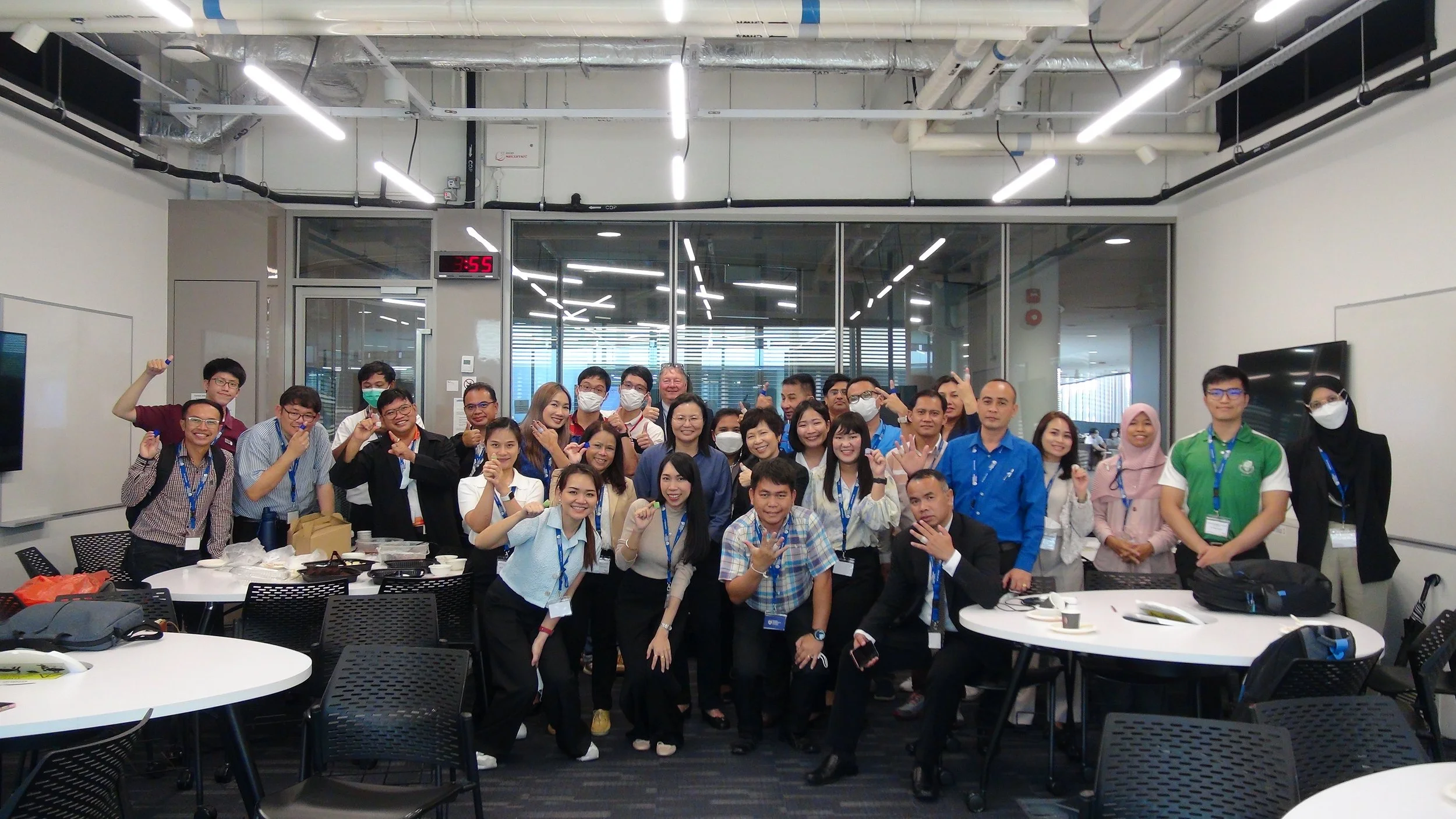STEM Programme for Thailand’s STEM Educators
STEM Programme for Thailand’s STEM Educators aimed to co-develop leadership capabilities in STEM education, STEM teacher- researcher competencies in planning and teaching integrated STEM lessons, facilitate knowledge creation, sharing, as well as professional development in integrated STEM education.
This programme was a meriSTEM@NIE collaboration with the Ministry of Thailand, SEAMEO STEM-ED and Office of Basic Education Commission (OBEC), Thailand. Funded by Temasek Foundation (TF), the programme involved co-developing leadership capabilities in STEM education, co-developing STEM teacher-researcher competencies to plan and teach integrated STEM lessons, and broadly to facilitate knowledge creation, knowledge sharing, and professional development in integrated STEM Education. The programme was led by Assistant Professor Choy Ban Heng.
Programme Highlights
2022
2023
STEM Professional Learning Journey
27 May 2022
Resuming In-Person PD in Thailand Post-Pandemic
On 27 May 2022, winners from the Empowering STEM Education Professional Programme (ESEPP) 21/22, went on a learning journey to Bangkok. Led by Ast/P Choy Ban Heng, A/P Teo Tang Wee, A/P Tan Aik Ling, and 10 teachers from Singapore, spent three days interacting with 50 teachers from different parts of Thailand to discuss STEM lesson ideas. The teachers from Thailand were from the 10 STEM Centres of Excellence (CoEs) formed from a joint project between meriSTEM@NIE, Temasek Foundation, OBEC, and SEAMEO-STEM Ed in Thailand. During the three days, the teachers used Design Thinking to build a solar heater, shared their STEM lesson ideas and their growth as STEM education professionals. It was a rewarding first in-person international professional development session after 2.5 years of pandemic.
Photo Gallery
Thailand Schools: Triamudomsuksa Pattanakarn Suvarnnabhumi School, Sa-Nguanying School, Princess Chulabhorn Science High School Trang, Narathiwat School, Borabue Wittayakhan School, Srisaket Wittayalai School, Buachedwittaya School, Yupparaj Wittayalai School, Phiriyalai School Phrae, and Phetpittayakom School
Singapore schools: Compassvale Secondary School, Raffles Institution, and Westwood Primary School
STEM Enculturation Programme in Singapore
25 – 27 October 2022
The “STEM Enculturation Programme in Singapore”, which took place from 25th to 27th October 2022 in Singapore, comprised a series of STEM workshops and learning journeys. The programme was designed for participants to learn about the emerging technologies that have been used in Singapore to design integrated STEM lessons, acquire knowledge on how coding, computational thinking, and engineering design thinking could be used to design and implement integrated problem-centric, solution-centric, and user-centric STEM lessons, and gain insights about Singapore STEM teaching and learning during the school visits and lesson observations.
After the opening ceremony, the 70 participants participated in a workshop organised by Ripplecreate. They were guided through the process of creating their own Virtual Reality space. They chose their avatar and explored its size, movement, and even speech options.
On the second day, they were split into three groups to attend three different workshops, namely Code to Sew, Urban Agriculture, and 3D printing.
There were two parts to the urban agriculture workshop. Participants were first introduced to engineering designing thinking through the context of urban farming. The hands-on experience of constructing their vertical farm prototype allowed them to better understand the limitations and challenges related to vertical farm design. In the second part of the workshop, they were brought to Skygreen, a vertical farming facility in Singapore to help them connect their classroom experiences to what the industries are doing. The tour started with a lecture on sustainable food supply and what Skygreens technologies aimed to do. This is followed by a tour of the Skygreen facilities where the participants were introduced to aquaculture systems, vertical farming structures, and how wastes are recycled to ensure that the farming system is sustainable.
Code to Sew was a user-centric STEM curriculum by meriSTEM@NIE and BERNINA (Singapore) to teach digital design and sewing. The participants thought that the program was amazing, wonderful, impressive, fun, and educational! They were delighted with the practical part of using the sewing machines by Bernina and were amazed by themselves their abilities to design and create with the machines.
The 3D printing workshop was designed by Professor Yeong Wai Yee from the Nanyang Technological University, who is well-known for her work in 3D printing. This emerging technology has gained traction in the last few decades; the field has moved from 3D printing of plastics to metals and food. Engineering design thinking is key to the process. Participants toured the 3D printing center and were given the opportunity to design and print a customised finger splint for themselves.
On the last day of the programme, the participants were split into three groups to visit three public schools in Singapore – School of Science and Technology, Compassvale Secondary School, and Hwa Chong Instituition. They interacted with the school leaders and STEM teachers and observed lessons to obtain first-hand experience in learning how Singapore teachers teach, and students learn in STEM classrooms. The programme ended on 27 October 2022 with a reflection session led by Assistant Professor Choy Ban Heng, and a presentation of certificates of appreciation to all the participants.
SEA STEM Fair & Expo 2023 & Hackathon
10 — 11 March 2023
The STEM Programme for Thailand’s STEM Educators ended off with the Southeast Asian STEM Education Fair and Exposition 2023 (SEA STEM Fair & Expo 2023) at the Pullman Bangkok King Power Hotel. The aim was to launch and showcase the learnings of the 10 CoEs in STEM Education. The programme on 10 March featured keynotes and an exhibition booth by each of the CoEs. Two schools, Triamudomsuksa Pattanakarn Suvarnabhumi School (TUPP) and Yupparaj Wittayalai School, were also invited to give a presentation. On 11 March, there was a hackathon for the teacher participants to design a device for the visually impaired to stay safe while cutting food for cooking.

